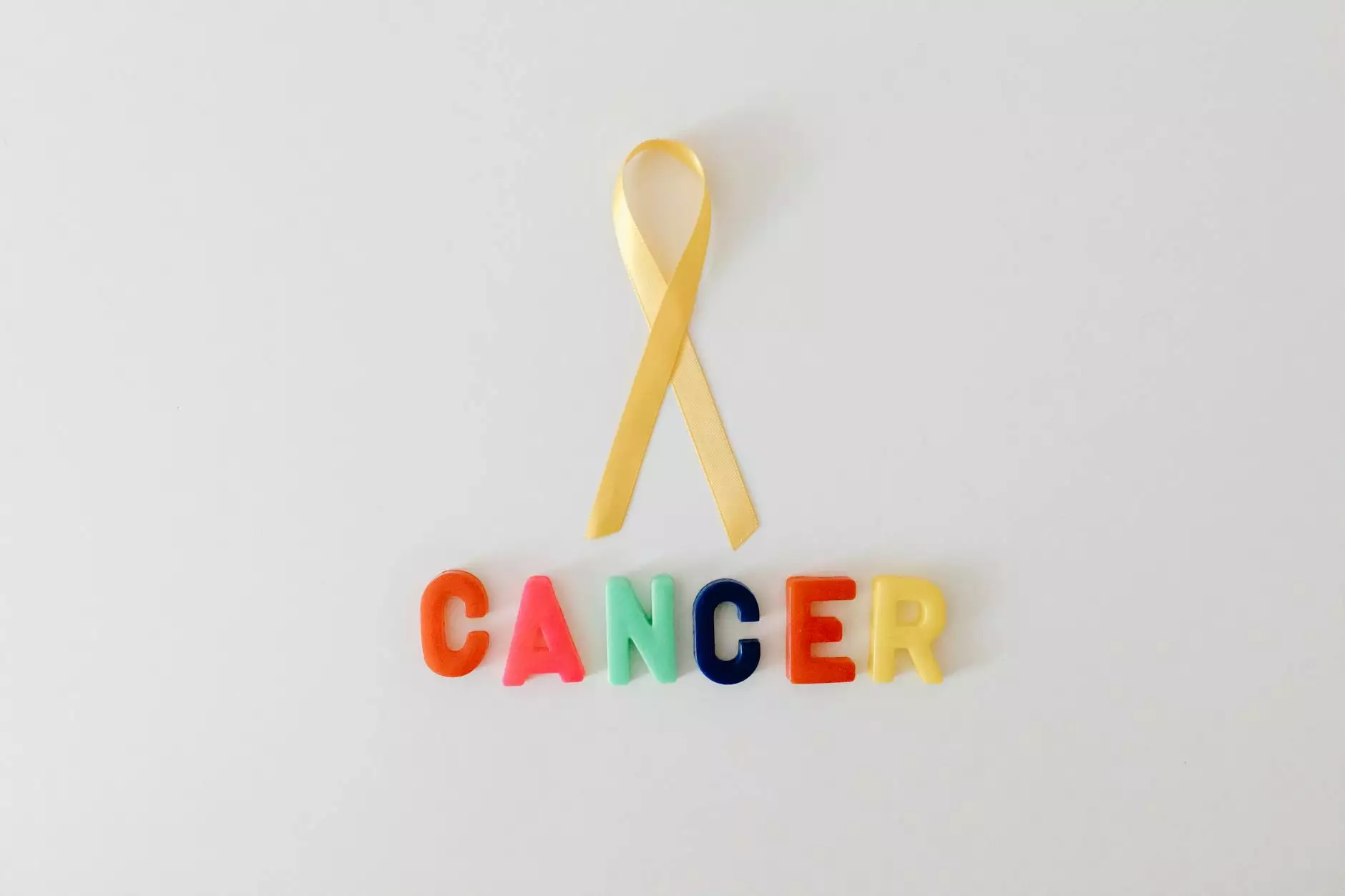Understanding Colon Cancer Treatment Centers

Colon cancer is a significant health concern affecting millions globally. Effective treatment is crucial for improving survival rates and quality of life for patients. In this article, we will explore the role of colon cancer treatment centers, their services, and what you should know about seeking treatment.
What are Colon Cancer Treatment Centers?
Colon cancer treatment centers specialize in diagnosing and treating colorectal cancers. These facilities provide a comprehensive range of services tailored to meet the needs of patients battling this complex disease.
Key Features of Colon Cancer Treatment Centers
A top-tier colon cancer treatment center offers several vital features, including:
- Experienced Specialists: Oncologists trained in colorectal cancer.
- Innovative Treatment Options: Access to the latest therapies, including targeted therapy and immunotherapy.
- Comprehensive Care: Support services such as nutrition counseling, mental health support, and pain management.
- Advanced Diagnostics: Use of cutting-edge technology for accurate diagnosis and staging.
Importance of Early Detection
Early detection of colon cancer significantly improves treatment outcomes. Regular screenings, including colonoscopies, are essential for identifying polyps or early-stage cancer. Colon cancer treatment centers emphasize preventive care and education to promote awareness. The following factors contribute to early detection:
- Family History: Those with a family history of colon cancer should start screenings earlier.
- Age: Routine screenings generally begin at age 45, but high-risk individuals may require earlier evaluations.
- Symptoms Awareness: Understanding symptoms like changes in bowel habits, unexplained weight loss, and abdominal discomfort can lead to timely medical consultation.
Types of Treatments Offered
Colon cancer treatment centers are equipped to provide a range of treatments, which may include:
Surgery
Surgery remains the primary option for treating colon cancer. Common surgical procedures include:
- Colectomy: The removal of part (partial colectomy) or all (total colectomy) of the colon.
- Minimally Invasive Techniques: Techniques such as laparoscopic surgery minimize recovery time and complications.
Chemotherapy
Chemotherapy is often used to kill cancer cells and reduce the size of tumors. It may be administered:
- Before Surgery: To shrink tumors (neoadjuvant chemotherapy).
- After Surgery: To eliminate remaining cancer cells (adjuvant chemotherapy).
Radiation Therapy
Radiation therapy can be a crucial part of treatment, particularly for rectal cancer. It may be used:
- Before Surgery: To reduce tumor size.
- After Surgery: To eliminate residual cancer cells.
Targeted Therapy
Targeted therapy focuses on specific characteristics of cancer cells. This approach is often less damaging to healthy cells compared to traditional chemotherapy and may include:
- Monoclonal Antibodies: These are lab-made molecules that can attack cancer cells.
- Kinase Inhibitors: These block signals that promote cancer cell growth.
Immunotherapy
Immunotherapy works by enhancing the body’s immune response against cancer. Though not suitable for every patient, it has shown promise in advanced disease.
Customized Treatment Plans
At colon cancer treatment centers, each patient receives a personalized treatment plan tailored to their specific type of cancer, stage of disease, and overall health. The multidisciplinary team assesses numerous factors, including:
- Pathology Reports: Detailed lab reports that help determine the cancer type and stage.
- Genetic Testing: Understanding genetic mutations that may influence treatment options.
- Patient Preferences: Incorporating patient values and concerns into treatment decisions.
The Role of Support Services
Comprehensive care extends beyond direct cancer treatments. Colon cancer treatment centers recognize that emotional, psychological, and physical support is vital for recovery. Some of the critical support services offered include:
- Nutrition Counseling: Nutritionists help patients maintain a balanced diet conducive to recovery.
- Psychological Support: Access to therapists or support groups to address emotional challenges.
- Palliative Care: Focusing on pain relief and quality of life, irrespective of cancer stage.
Clinical Trials at Colon Cancer Treatment Centers
Participating in clinical trials can provide patients access to cutting-edge therapies not available elsewhere. Colon cancer treatment centers often conduct clinical trials focusing on new drugs, protocols, and diagnostic techniques. Patients should discuss with their oncologists regarding available studies that may be suitable.
Choosing the Right Colon Cancer Treatment Center
Selecting a colon cancer treatment center is a pivotal decision in a patient’s treatment journey. Here are some tips to consider:
- Reputation: Look for centers with a proven track record in colorectal cancer treatment.
- Accreditations: Ensure the center is accredited by relevant health organizations.
- Multidisciplinary Approach: Choose centers that employ a team of specialists for comprehensive care.
- Patient-Centric Environment: A supportive environment can greatly impact recovery.
Patient Experiences and Testimonials
Hearing from patients who have undergone treatment can provide invaluable insights. Many colon cancer treatment centers invite former patients to share their journeys, discuss their treatment options, and highlight the support received from healthcare teams. These testimonials can empower new patients and help them understand what to expect.
Future of Colon Cancer Treatment
The field of oncology is ever-evolving, with constant research and advancements in treatment methodologies. The future of colon cancer care is promising, with innovations like liquid biopsies for early detection and personalized medicine tailored to a person’s genetic makeup. Researchers continue to explore new drug combinations and target therapies that optimize treatment outcomes while minimizing side effects.
Conclusion
Colon cancer treatment centers play a vital role in the fight against colorectal cancer. With their comprehensive care options, experienced specialists, and support systems, these centers provide hope and healing to numerous patients undergoing treatment. As awareness and research continue to grow, seeking timely and effective treatment becomes more attainable, paving the way for better health outcomes.
For more information about colon cancer treatment centers, consider reaching out to a specialized facility, such as oncologicalsurgery.net, where you can find a wealth of resources and support for patients and families.









